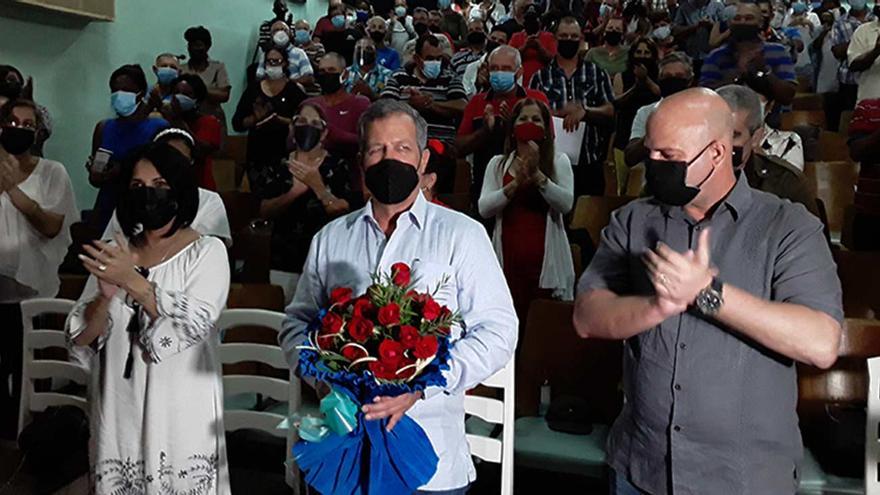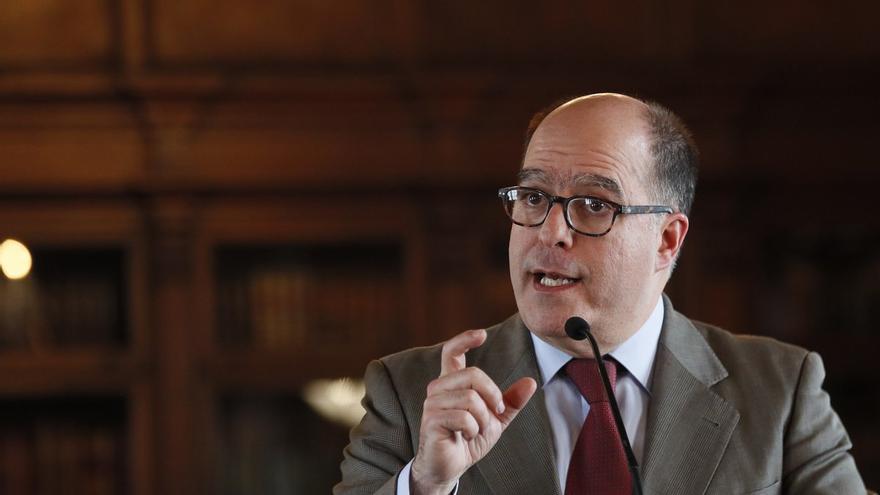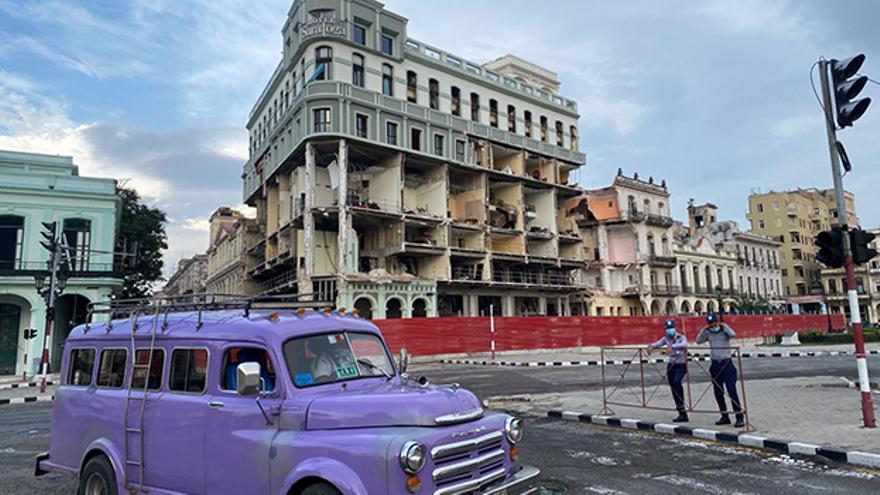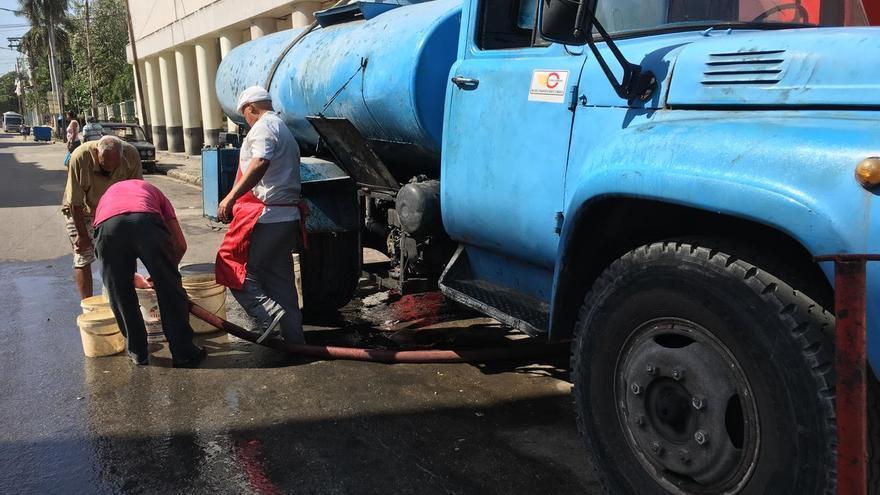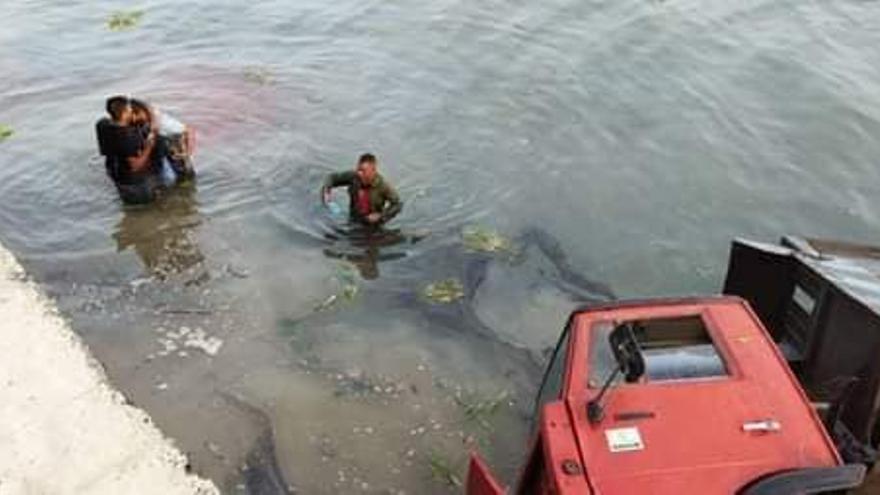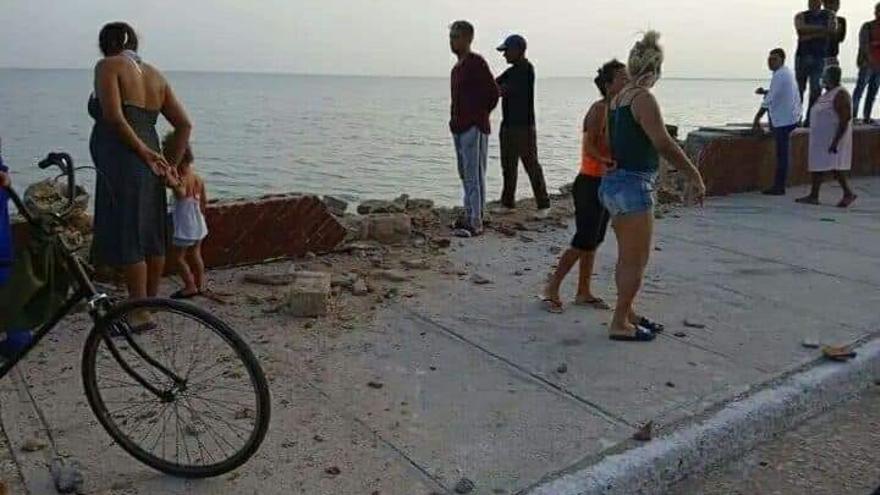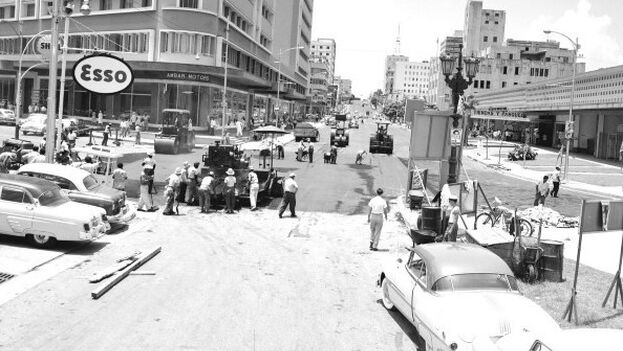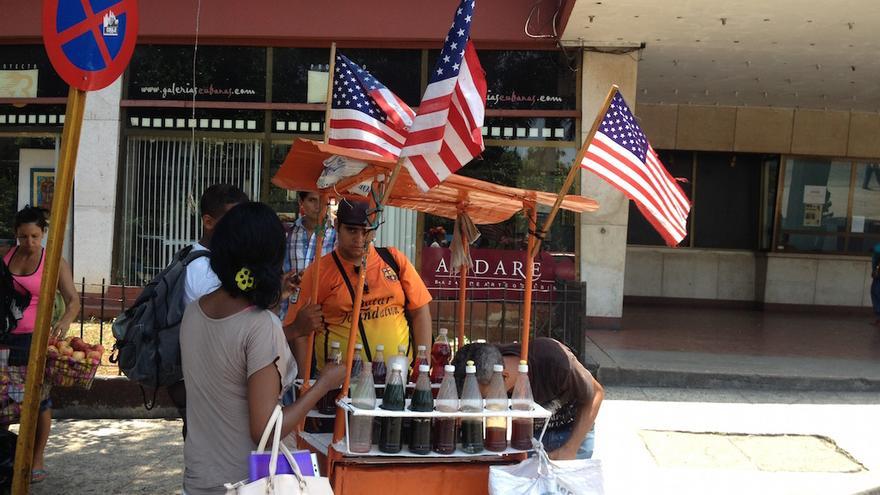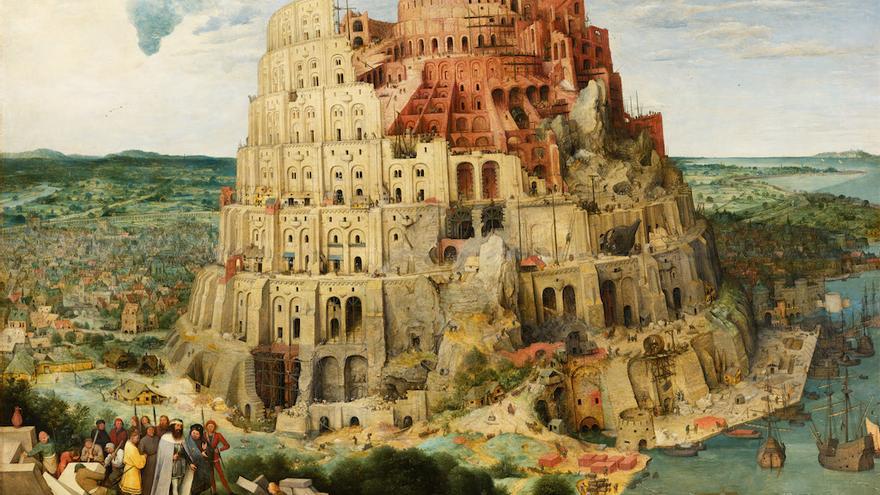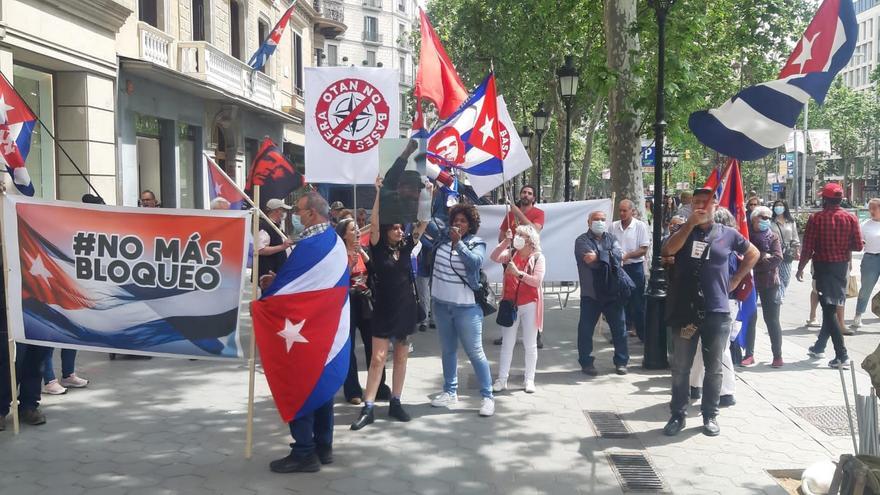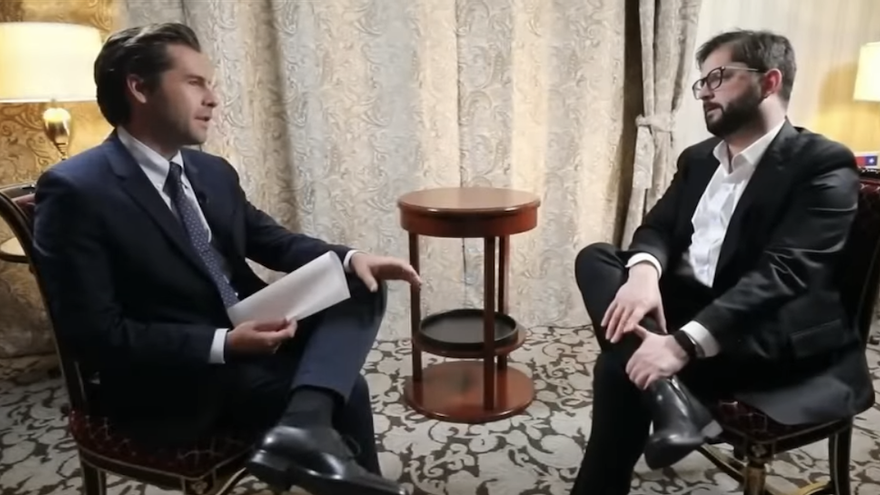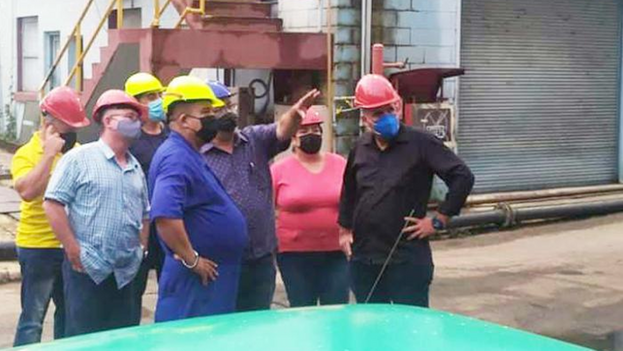
![]() 14ymedio, Natalia López Moya, Havana, 25 June 2022 — Last Thursday, at a fat contest in celebration of Father’s Day in Nicaragua, a man with a circumference of 57 inches around his belly was the winner. The peculiar award has caught the attention of Cubans, who in recent years have seen their relatives lose weight due to the crisis while the senior leaders’ bellies grow every day, as shown by the images published in the official press.
14ymedio, Natalia López Moya, Havana, 25 June 2022 — Last Thursday, at a fat contest in celebration of Father’s Day in Nicaragua, a man with a circumference of 57 inches around his belly was the winner. The peculiar award has caught the attention of Cubans, who in recent years have seen their relatives lose weight due to the crisis while the senior leaders’ bellies grow every day, as shown by the images published in the official press.
60-year-old Ricardo Páiz is the proud Nicaraguan who swept the belly competition in the “Papá Panzón”(Potbelly Dad) competition, but if the contest were held in Cuba, it is very likely that the first places would fall on one or another cadre of the Communist Party, the administrator of a state entity or the Provincial Governors, many of them with weight problems.
Although the kilogram excesses are generally associated with poor nutrition, having a high position in Cuba carries the “privilege” of being able to binge eat, while the majority of the population deals with the difficulties of finding something to put on the table. The trend towards athletic and sporting politics seems not to have reached Cuba, where its ruler, Miguel Díaz-Canel himself, has experienced a notable weight gain since he became president.
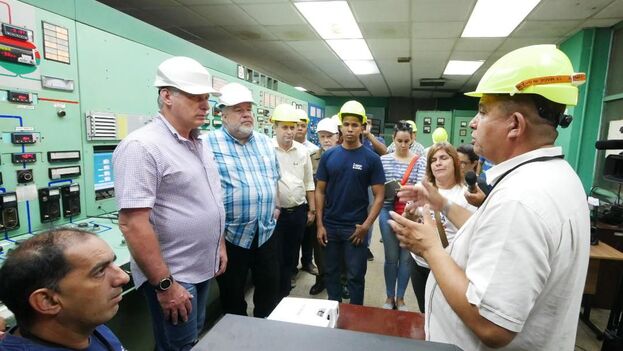
The bulk, which they often try to cover up with girdles that squeeze the bellies but are noticeable in front of the cameras, wide shirts, baggy jackets and filtering the angle of the official photos, generates discomfort among Cubans, who see in their leaders’ obesity a clear indicator of the abundance at their tables. References, monikers and criticism about so many extra pounds are constantly heard on the streets of Cuba.
“Fat necks,” “the first belly of the Republic,” “the paunchy,” “the potbellies” and many other nicknames have been added to the glossary of the popular ridicule against ministers and partisan cadres. This, despite the fact that there is a high prevalence of overweight people in Cuba at 59%, while obesity has already reached 25%, according to FAO data. But the current crisis could be taking away some of those “life preservers” around the abdomen.
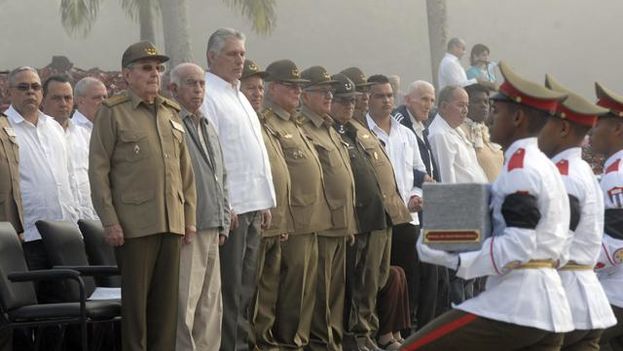
Between 1990 and 1995, the most difficult years of the Special Period, the Cuban population lost an average of over 12 pounds of weight, according to a study published in 2014 by the British Medical Journal. The data of the current crisis are still unknown but most of those interviewed by this newspaper say that both they and their relatives “are now thinner and eat less” than five years ago.
But while clavicles protrude in some, bellies grow in others. Manuel Marrero, the Cuban Prime Minister, shows one of the most obvious pictures of obesity and his attempts to hide his belly in public are no longer of any use. “He was lucky they removed the mandatory mandate, because he was going to need a bed sheet to cover his face” says María, a 65-year-old from Havana who has lost over 15 and a pounds in three years.
Camagüey’s governor, Yoseily Góngora López, is another of the most extreme cases of overweight among Cuban officials. In August 2022, the activist of the Patriotic Union of Cuba, José Luis Acosta Cortellón, was arrested and accused of threatening Góngora on social networks for publishing a meme in which he alluded to Góngora’s obesity.

“Just by awarding someone an important position causes that person’s weight to go up immediately”, complains Antonio, a retiree from La Lisa, who clarifies that “it’s not a question of fatsophobia or believing that all people with a few extra pounds are corrupt, but the amount of overweight that is seen in party leaders when out in public is immoral.”
Translated by Norma Whiting

